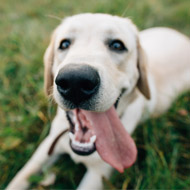Study suggests dogs possess metacognitive abilities

"These results show that dogs do tend to actively seek extra information when they have not seen where a reward is hidden".
Dogs are aware of when they do not have enough information to solve a problem and will actively search for more, according to new research.
Writing in the journal Learning & Behaviour, researchers describe a study in which dogs had to find a reward behind one of two fences. They found that the dogs “checked” more often when they did not know where the reward was hidden.
“These results show that dogs do tend to actively seek extra information when they have not seen where a reward is hidden,” explains project leader Juliane Bräuer, from the Max Planck Institute for the Science of Human History. “The fact that dogs checked more when they had no knowledge of the reward’s location could suggest that dogs show metacognitive abilities, as they meet one of the assumptions of knowing about knowing.”
In the experiment, researchers placed either a food item or toy behind one of two V-shaped fences. In some tests, the dog could see which fence the reward was placed behind, while in others the dog could not.
Researchers then assessed how often the dogs looked through a gap in the fence before making their choice. If the dog checked through the gap, this would indicate that it did not know where the reward was, which is a metacognitive ability, and would try to obtain more information before selecting a fence.
Bräuer says that while the experiment provided some evidence that dogs possess metacognition - similar to chimpanzees and humans - the results were not conclusive.
“For humans, vision is an important information gathering sense. In this case, our experiment was based on a ‘checking’ action relying on sight – but the dogs probably also used their sense of smell when checking through the gap,” she said. “We know that smell is very important for dogs and we could see that they were using it.
“In future, we would like to develop an experiment investigating under what circumstances dogs decide to use their sense of smell versus sight. This may give us additional insights into their information seeking abilities.”



 The RCVS has announced a new version of its 1CPD mobile app, with enhanced features for veterinary surgeons and veterinary nurses to record their continuing professional development.
The RCVS has announced a new version of its 1CPD mobile app, with enhanced features for veterinary surgeons and veterinary nurses to record their continuing professional development.